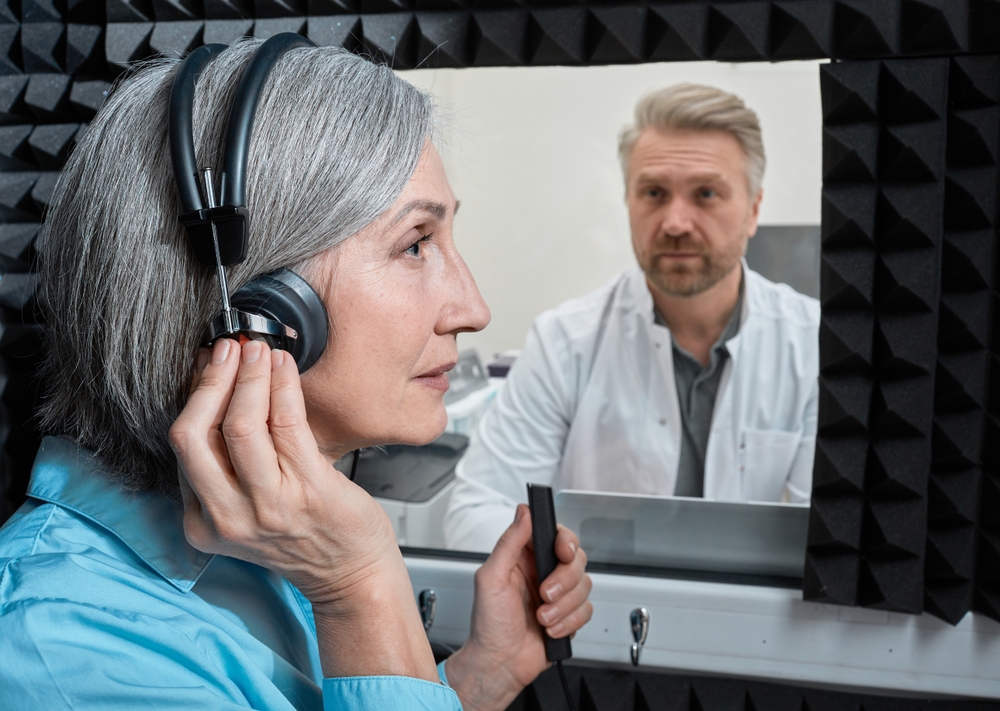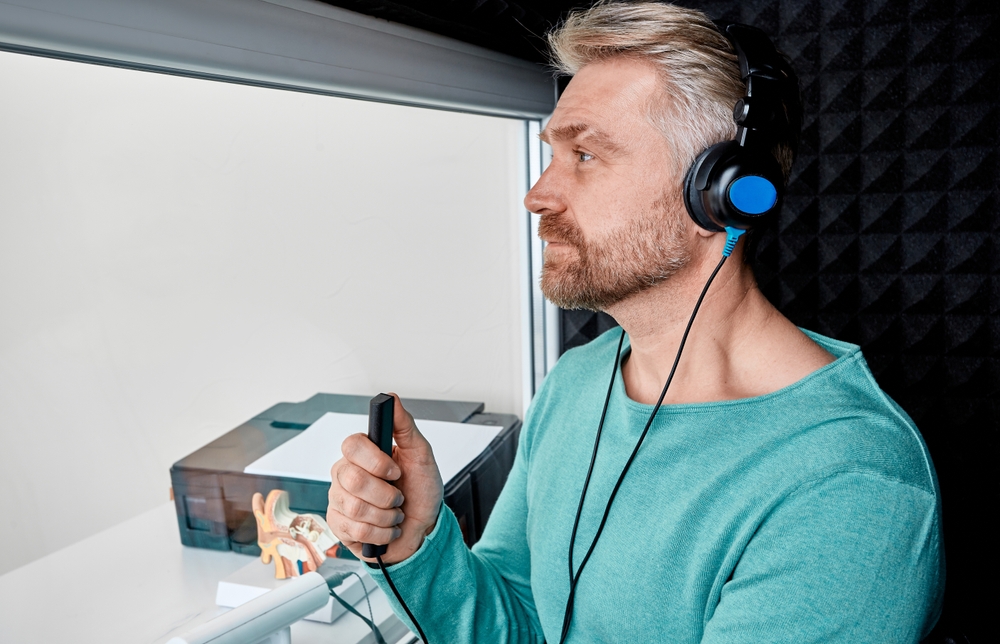Is your hearing not what it used to be? Maybe you’re turning the TV up louder than you used to just to hear it, or you keep asking people to repeat themselves while they’re talking to you. You could even be hearing a ringing in your ears that ranges from mildly annoying to downright debilitating. If any of these sounds like you, then it might be time to get that one critical test that many people haven’t thought about since grade school: a hearing test.
Hearing tests can shake things up
If left untreated, hearing loss can become permanent and exacerbate a number of health problems. So why don’t more people get their hearing tested?
“My kids were always complaining about at how loud the TV was whenever they came to my house,” says Rick, a 75-year-old grandfather who was recently tested for hearing loss. “I never noticed it. If I couldn’t hear the TV clearly, I would just turn the volume up. That’s what everyone does, right? The difference is that I was turning it up to 60 when most people could hear just fine at 30.”
Obviously, a big clue that you may be suffering from hearing loss is that you’re turning up the volume on devices and having trouble hearing what people say. But in a lot of cases, most people think they can just tough it out.
“The kids would always tell me that I should go get my hearing tested and I would agree, but then never follow through,” said Rick. “It never seemed that important and I felt like I could get by. Turn the TV and radio up louder, put the volume on the phone all the way up, lean in closer when people are talking to me. Those kinds of things.”
The link between hearing loss and dementia
So what was it that got Rick to finally take the plunge?
“My son sent me an article about the link between hearing loss and dementia, and that’s what made me go for a hearing test and eventually get hearing aids,” said Rick. “My step-father’s mother lived with us when I was younger because she had Alzheimer’s, and then my step-dad eventually developed it when he got older. Even though it doesn’t run in the family, I still saw firsthand what that disease looks like and I want to do anything I can to avoid it.”
In fact, studies show that hearing loss is linked to many forms of cognitive decline, including memory loss, dementia, and Alzheimer’s disease, as well as mental health problems such as anxiety and depression.
After reading the article, Rick made an appointment with a hearing specialist to get his ears checked out. It turned out he lost a significant amount of hearing in his right ear, and while his left ear fared better, it was still far from perfect. After getting the results, Rick asked the hearing specialist what options were available to help him start hearing again. That’s when they recommended that he get hearing aids.
How hearing aids can help
Hearing aids carry a stigma that they’re only for old people, and believe it or not, that stereotype turns a lot of people away from getting them. In fact, fewer than 16% of people aged 20-69 who could benefit from hearing aids use them. That number jumps to 30% – or less than one-third – for the 70-and-over crowd. However, hearing aid technology has advanced by leaps and bounds over the past few years, and many are designed to be barely noticeable.
Not only does Rick seem younger now that he’s engaging more in conversation, but his hearing aids have also improved his quality of life. Rick is grateful for the help that hearing aids have given him. “I can’t believe what I was missing out on. I don’t have to struggle to hear people or try to guess what they’re saying anymore.”
And his kids’ favorite part about the hearing aids?
“They’re finally happy the TV’s at a normal volume these days.”
Are you ready to start hearing better? Contact a hearing specialist near you to schedule a consultation to get your hearing tested and find out what treatments are available to you.



